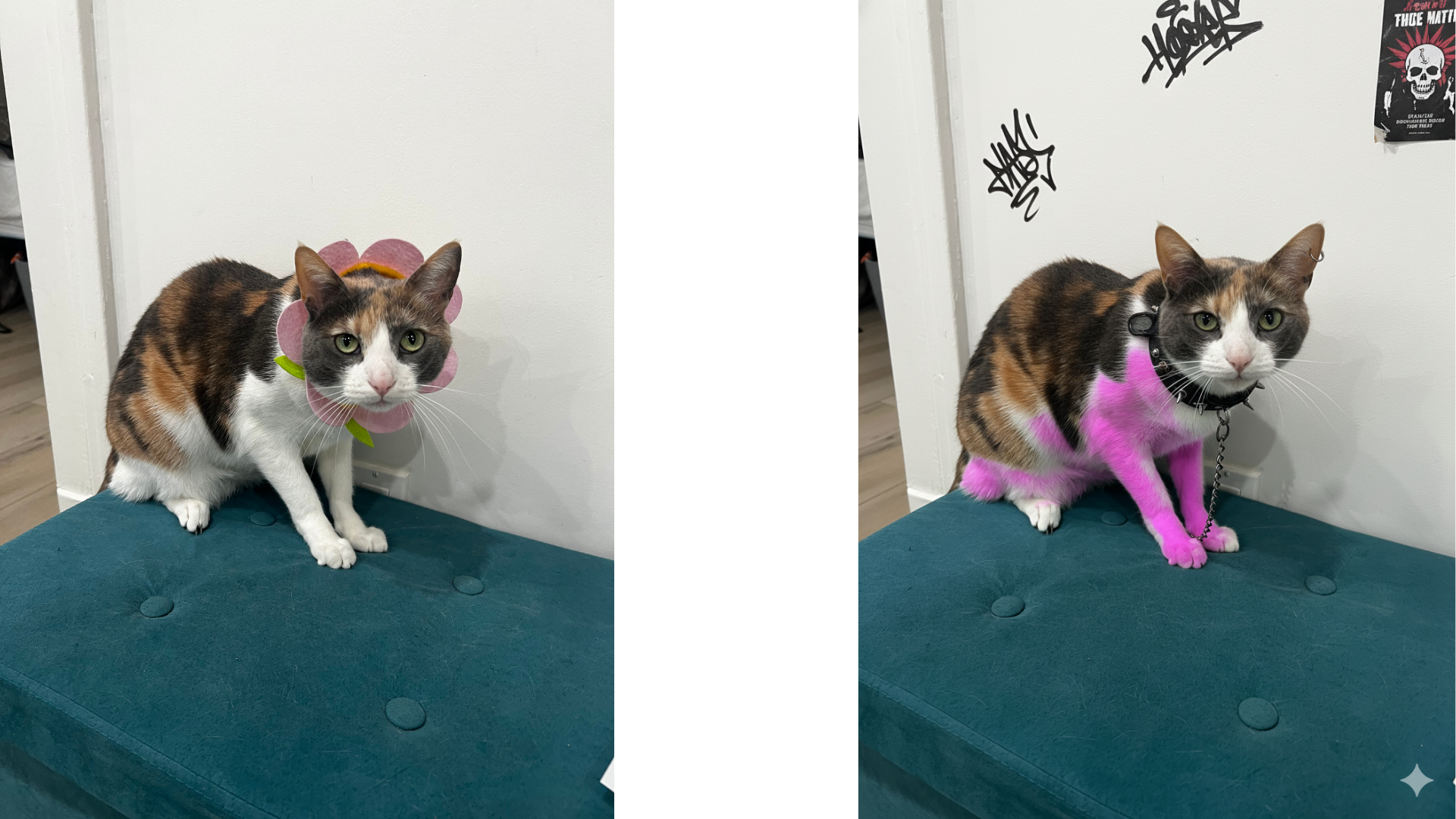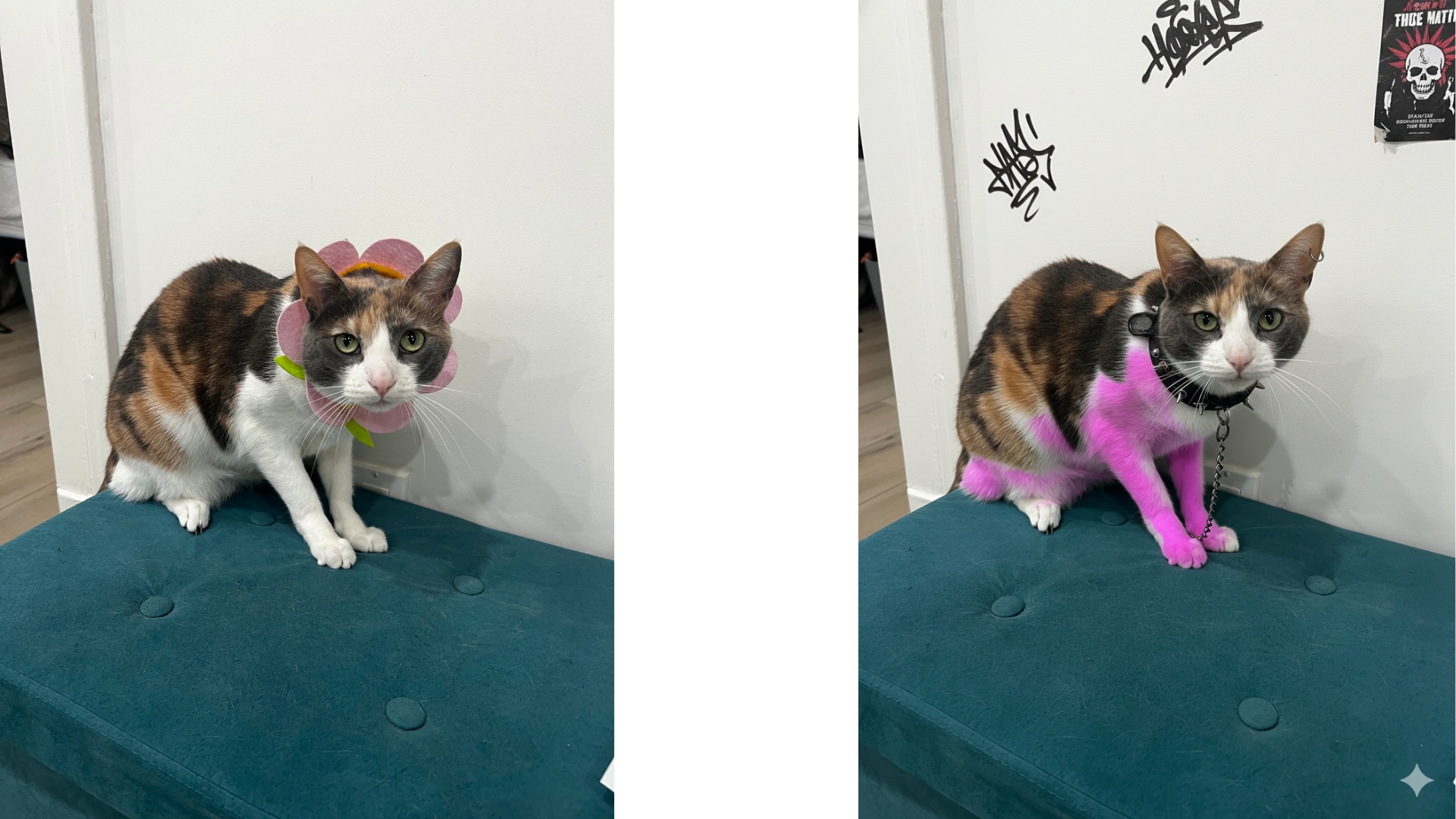Google recently released their Nano Banana model, and it is electric. One of the biggest headaches of AI image generation has been the lack of ability to maintain the look of the original image through following generations. The generation process historically distorts the image. But with Nano Banana, the amount of distortion is much lower.
Table of contents
Open Table of contents
Realistic Edits While Preserving Identity
Spending less time battling distortions: The amount of time I’ve lost trying to get an image model to accurately reflect someone or something is something I’d rather not admit. But with Gemini 2.5 Flash Image, it is much better.
Let’s look at an example: Let’s take a look at a one-shot prompt to show how this works… Here are two images of my cat. The one on the right is real. She was dressed up like a flower for halloween. I simply said “Make her look punk rock”, and this is what we got.

Not bad! What’s super good is the consistent posture. The facial expression distortions are minimal. She does look more punk rock. Much more edgy than when she was dressed up as a flower.
So if you migrate to Nano Banana for your image generation, expect good consistency across image generations.
Let’s Talk Use Cases
Thumbnails: Nano Banana is stellar at making thumbnails for videos or articles or social media posts. You can ask it to generate text alongside, or you can load the image into Canva and add your own. Make sure you ask for a thumbnail style balance if you’re loading it into another image editing software to put finishing touches.
Memes: This is one of my favorites. Use it to make custom memes. Did you recently invest in an oil company? Make a meme of yourself as an oil baron. Make yourself the monopoly man. Live your dreams.
Software Prototyping: Try giving Nano Banana an application mockup your want to make, and see if it can make sense of it. You could then put that mockup into some sort of AI pipeline, where you transform it into a component structure, file scaffold, or anything else necessary in your software design.
Caveats and Things To Watch
No tool is perfect: Given generative AI is a probabilistic generation engine, it will make mistakes. So if you’re planning on using a model like Nano Banana for serious work, keep that in mind and make sure you scrutinize the output for quality.
Watermarking: As you can see with the image of my punk cat, there’s a watermark. So keep that in mind. Given copyright concerns, I’m unsure the legality of cropping this away, so use your own discretion.
Prompts still matter: Prompting is still important, and although in my example I gave a very vague ask, if you want specific outputs, you’re going to have to write a good prompt. I suggest using JSON in your prompts if you want specific colors, structure, ratios, angles, lighting, etc.
Where To Try It
Google’s AI Studio: The model, also known as Gemini 2.5 Flash Image is available in the Google AI Studio. You just need to make an account, and you can even link it to your Google Drive for an easy storage integration.
